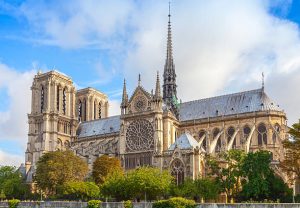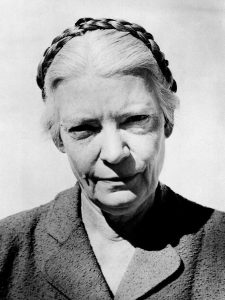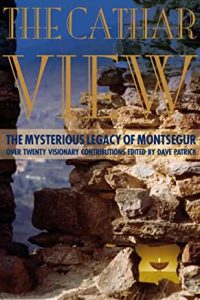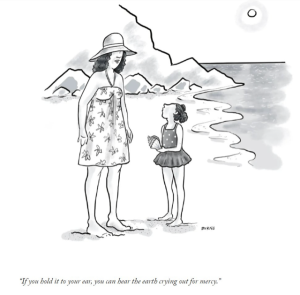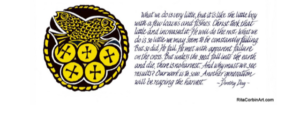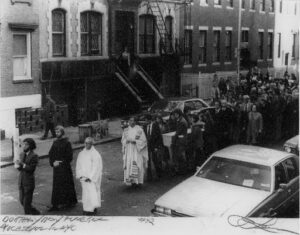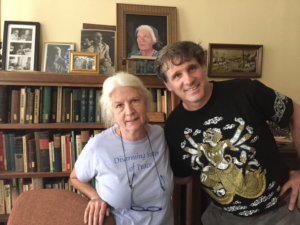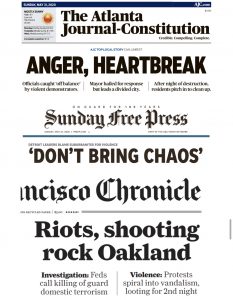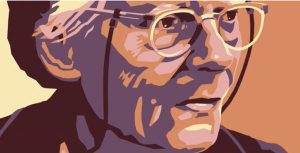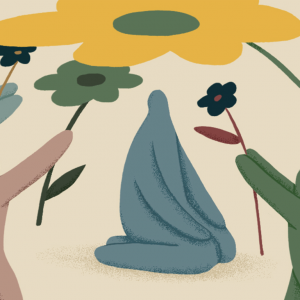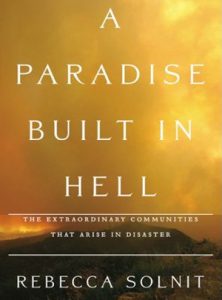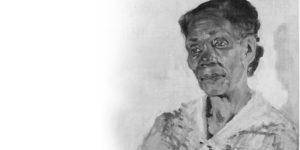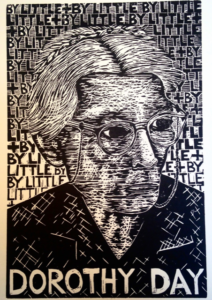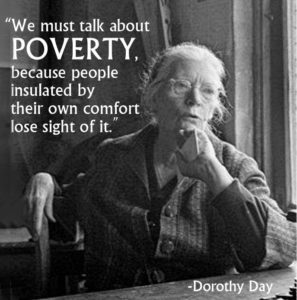Dorothy Day
Dayle in Limoux – Day #32
August 6, 2022BBC
‘The Notre-Dame Cathedral is on track to open its doors to worshippers and the public in 2024, says France’s culture minister.
The 13th Century Paris monument caught fire in April 2019, sparking a vast outpouring of emotion.
Since then, a huge restoration project has been carried out aiming to restore it to its previous design.’
Wonderful news! In time, too, for the Summer Olympics in Paris.
UN
Today, remembering the anniversary of Hiroshima, particularly poignant after the startling reminder from the UN chief that humanity is ‘one miscalculation away from nuclear annihilation.’
“It is totally unacceptable for states in possession of nuclear weapons to admit the possibility of a nuclear war,” António Guterres underscored early on Saturday in Japan at a ceremony marking the 77th anniversary of the atomic bombing of Hiroshima.
Land grabs, borders, and bored male leaders who are pained by their quest for power and greed and violence.
From Dorothy Day:
“Mr, Truman was jubilant. President Truman. True man; what a strange name, come to think of it. We refer to Jesus Christ as true God and true Man. Truman is a true man of his time in that he was jubilant. He was not a son of God, brother of Christ, brother of the Japanese, jubilating as he did. He went from table to table on the cruiser which was bringing him home from the Big Three conference, telling the great news; “jubilant” the newspapers said. Jubilate Deo. We have killed 318,000 Japanese.”
—Dorothy Day, editorial following Hiroshima bomb [Posted on social media by Robert Ellsberg, Orbis Books]
‘God is that which promotes life, evil is that which destroys it.’
-Albert Schweitzer [1875-1965]
‘Now I have become death, the destroyer of worlds.’ –Bhagavad Gita
D I V I N E F E M I N I N E
‘There is no day on which I grow not
Finer and more pure,
For this world holds no nobler lady
Than she whom I do serve and I adore.
And these – the words I speak –
Come singing from an open heart.’
-Troubadour Arnaut Daniel, 1180-1200
(Translation by Henry Lincoln.]
‘Throughout history, the quest for beauty, loe and truth has struggled to survive amid the quest for dominance and greed. During the medieval era, the dominant powers of church and state burned the last Templars. They burned thousands of Cathars, and they burned Joan of Arc, who tried to liberate her people from foreign rule. They even tried to ban the poetry and songs of the troubadours. But the spirit of truth would not be silenced and rose again and again, from the dust and ashes, rising from the half remembered promise patterned in the blood, held in the heart. Always they return, with the flame of hope for a better world filled with compassion, beauty and a song of love returning to the land […] a new earth and return to Beauty.’
-Ani Williams, harpist and singer, who has recorded more than two dozen albums of original sacred music based on ancient spiritual traditions.
Bonne nuit.
Dorothy.
March 31, 20217th Generation Principle
The Seventh Generation takes its name from the Great Law of the Haudenosaunee, the founding document of the Iroquois Confederacy, the oldest living participatory democracy on Earth. It is based on an ancient Iroquois philosophy that:
“In our every deliberation, we must consider the impact of our decisions on the next seven generations.”
On either side of the river is the tree of life…and the leaves of the tree are for healing of the nations. Nothing accursed will be found there any more.- Revelation 22:2-3
-
Community
-
Ancestors
-
Gaia
https://www.7genfoundation.org/7th-generation/
Dorothy Day.
November 23, 2020With author David Brooks & publisher Robert Ellsberg.
“In anticipation of our upcoming commemoration of the the 40th anniversary of Day’s death on November 29th 2020, we remember the eulogy given by Father Geoffrey B. Gneuhs, O.P. at the funeral of Dorothy Day, Nativity Church, New York City, December 2, 1980:”
In her book The Long Loneliness, Dorothy wrote, “All my life I have been haunted by God.” And where did this haunting God lead her? To a life of simplicity and poverty with the poor, to solidarity with the outcasts—today in this city of New York there are more and more people homeless as mental hospitals close and social services are cut back, while at the same time this country spends $170 billion a year for armaments.
This haunting God led Dorothy to jail because
she spoke and acted for the rights of women and men, of laborers and workers; she was led to jail because she stood with the farm workers, and to prison because she would not tolerate the militarist posture of this country. She was led ultimately to community, to love.
This being haunted by God became for her a stupendous and extraordinary pilgrimage, a pilgrimage of faith. For sure, the Sermon on the Mount sums up the entire life and spirit of Jesus, and it is an invitation which Dorothy with consummate conviction accepted. She realized that love is an exchange of gifts: the gift of faith, and she in turn offered the gift of her life lived in faith, given for us and thousands of others. The Sermon on the Mount, along with the 25th chapter of St. Matthew, the cornerstone of the Catholic Worker movement, is not some general guide or optional outline. It is the very expression of the flesh and blood of Jesus—the Incarnation of Truth.
In our country, those who have so much, too much, are apt to declare “Well, the poor you’ll always have with you”—not realizing or hearing Jesus speak the Truth in the Sermon, not hearing the Truth call out. That is precisely the point. Christ the poor one is always with us!
Dorothy, with dear Peter Maurin, of whom she wrote, “He was my master and I was his disciple, he gave me a way of life,” realized this Truth so well. She said, “What a simplification of life it would be if we saw Christ everywhere we go.” Did you give me clothes? Did you give me food? Did you give me shelter in the empty room in your home, of your rectory or priory?
To love, for her, was not a duty but a privilege. And should it not be for all of us? It begs the question: Do we want to meet Christ? Do we really believe? We do not have to go far to see Christ, to invite Christ, and to be invited by Christ. The invitation is offered for loaves and fishes, more often at our houses, soup and bread and tea. To those of us who doubt, to us Christians who waver, Dorothy showed by her love that, yes, the Gospel is possible. The Gospel is so possible it is now and cannot wait for the future. The moment is ours. Dorothy seized the moment given her. The Truth called her forth and she accepted the invitation—solidarity with those without the arrogance and dominance of wealth, power, and prestige. She lived the Truth with all its starkness and abruptness, with all its freedom and its love.
She wrote, “We cannot love God unless we love each other and to love we must know each other—and we will know Him in the breaking of the bread—and then we are not alone anymore. Heaven is a banquet and life is a banquet too, even with a crust, where there is companionship.” Love is not meant to be a half measure, nor is it meant to be easy. Dorothy on her pilgrimage knew that violence and war are not the way of Christ, that love is the only measure. Thus Truth again called her forth and she accepted the invitation to speak out against war and the crucifixion of humanity by nuclear armaments.
Wouldn’t it be a tragedy for us to equivocate or to dilute the spirit of her life?
She was utterly convinced of the rightness of pacifism and of nonviolent resistance to statism. And never, even at age 83, did she waver in the clarity of her vision of Truth and in her conviction.
Today the romance of war and power and individualism ignores the capacity of the human imagination imaged in God to see and to live the Gospel of gentle personalism and unconditional love. And Dorothy loved life, believed in life, enjoyed life. It was the very life of a child that welled up in her the invitation to the pilgrimage. In St. John’s Gospel, Jesus says, “I have come to bring life, to bring life more abundantly.”
Remember when Jesus was on trial for his actions of Truth? He said to Pilate, “Mine is not a kingdom of this world. If my kingdom were of this world, my men would have fought…. I came into the world for this: to bear witness to the truth and all who are on the side of truth listen to my voice.”
And what was Pilate’s reply? “Truth,” he said, “what is truth?” In a truthless world, some have struggled to listen to His voice and to continue to speak Truth—the Truth of Christ. And one was Dorothy: in her commitment to justice, to freedom and to peace, her resistance to the kingdoms of this world, and her unflinching commitment to the belief that love will redeem the world, Dorothy had a dream of this Truth, the dream became a vision, and the vision became a light for the world. The Truth guided her pilgrimage and she admitted, “We confess to being fools and wish that we were more so.” Oh, thank God for such foolishness!
And so Dorothy, the pilgrimage is over. You’re home now. The Truth invites you to the eternal banquet.
Dorothy Day’s granddaughter sentenced to prison for nuclear base break-in
Martha Hennessy, a granddaughter of Dorothy Day, the founder of the Catholic Worker movement, was sentenced Friday (Nov. 13) to 10 months in prison for breaking into Kings Bay Naval Base in Georgia two years ago to protest its stockpile of nuclear weapons.
Hennessy’s was the lightest sentence given for the break-in at the Navy base 40 miles south of Brunswick, Georgia, on April 4, 2018, in which Hennessy, 65, was joined by six other Catholic pacifists. Together they are known as the Kings Bay Plowshares 7, named after the Plowshares anti-war movement founded 40 years ago by Daniel and Philip Berrigan and six others.
On Thursday, Carmen Trotta, of St. Joseph Catholic Worker in New York City, was sentenced to 14 months in prison, while Clare Grady of the Ithaca Catholic Worker was sentenced to 12 months. Both have spent their lives at Catholic Worker houses in New York state, which house and feed the needy. All were also sentenced to probation and will be required to repay the Navy base a total of $33,500 in damages.
Hennessy is the only one of Dorothy Day’s nine grandchildren to dedicate herself to what Catholics call “works of mercy.”
Hennessy — in a statement right before her sentencing — said she regarded the action as a religious exercise, likening it to Jesus’ action of overturning the money-changing tables at the entrance to the Jerusalem Temple, as described in the New Testament gospels.
“I had no criminal intent,” she said. “I wanted to prevent a nuclear holocaust.”
If not now, when?
May 31, 2020‘Apocalypse (ἀποκάλυψις) is a Greek word meaning “revelation”, an unveiling or unfolding of things not previously known and which could not be known apart from the unveiling.’
‘Our nerves, our home, our country crave peace’…and leaders. As the helpers and heroes sustain us, I pray for shift. -dayle
Now, I have no choice but to see with your eyes,
so I am not alone,
so you are not alone.
-Yannis Ritsos
Mark Nepo:
There is a story of Gandhi that reveals how profound and daring his sense of compassion was. It occurred during one of his famous hunger strikes. A man whose daughter was killed came in anguish, saying to Gandhi that he would stop fighting if the great soul would eat. But Ghandi knew the healing was deeper than just stopping the violence, and so he told the man he would eat only when the tormented father embraced the man who killed his daughter.
It is said that the man collapsed in tears, but did as Gandhi asked, and the larger conflict ended. This is an enormous thing to ask of someone in grief, of someone who has been violated. But beyond the vast courage needed to incorporate this kind of love into our daily lives, Gandhi’s request reveals the irrefutable wisdom that only when the broken are headed, no matter what they have done, will we as a people heal.
-The Book of Awakening, p. 179.
Image credit: Dorothy Day, by Julie Lonneman.
’So what makes a good community? Our very survival as a faith tradition, not to mention a species, might just depend upon this.’
Common Ground & Purpose
People want something more from church than membership. They long for a spiritual home that connects with their whole life, not just somewhere to go on Sunday morning. Church is meant to be a place that nurtures and supports individuals along their full journey toward the ultimate goal: a lived experience of the communion of saints, a shared life together as one family, the Reign of God “on earth as it is in heaven” (Matthew 6:10).
Too often, the formal church has been unable to create any authentic practical community, especially over the last half-century. In response, we see the emergence of new faith communities seeking to return to this foundational definition of church. These may not look like our versions of traditional “church,” but they often exemplify the kinds of actual community that Jesus, Paul, and early Christians envisioned. People are gathering digitally and in person today through neighborhood associations, study groups, community gardens, social services, and volunteer groups. They’re seeking creative ways of coming together, nurturing connection, of healing and whole-making. The “invisible” church might be doing this just as much, if not more, than the visible one. The Holy Spirit is humble and seems to work best anonymously. I suspect that is why the Holy Spirit is often pictured as a simple bird or blowing wind that is here one minute and seemingly gone and then nowhere (John 3:8).
It’s all too easy to project unrealistic expectations on any community. No group can meet all our needs as individuals for emotional, mental, and physical well-being. The human psyche needs space and healthy boundaries and not co-dependent groupings. I certainly learned this lesson myself through my participation in the New Jerusalem Community in Cincinnati in the 1970s and 80s, and even earlier as a Franciscan brother. Almost any community can serve as an excellent school for growth, character, and conversion, even though it may not be a permanent “home” for many reasons.
Remember, the isolated individual is fragile and largely helpless to evoke long-term change or renewal. By ourselves, we can accomplish very little. We must find common ground and common purpose to move forward. Fr. Richard Rohr
‘We wake to our cities in pain but also in longing. Full of far more people ready to build & create than to tear apart. On Lake St in Minn yesterday I saw what the drones & news cameras do not convey – an alternative landscape of care rising up around devastation.’ -Krista Tippet, On Being
The NASA/SpaceX launch and ISS dock has brought needed respite, inspiration, and hope. Look what we can accomplish as a species when we work together. -dayle
Let us surrender to Divine Grace.
-Rev. Dr. David Ault
Dorothy & Rebecca
March 9, 2020Dorothy Day [1997-1980], journalist and social activist, was 8 years old on the night of April 18th, 1906, living in Oakland, during the San Francisco earthquake.
‘There were broken dishes all over the floor, along with books, chandeliers, and pieces of the ceiling and chimney. The city was in ruins, too, temporarily reduced to poverty and need. But in the days after, Bay Area residents pulled together. “While the crisis lasted, people loved each other,” she wrote in her memoir decades later. “It was as though they were united in [compassionate] solidarity. It makes one think of how people could, if they would, care for each other in times of stress, unjudgingly in pity and love” [David Brooks, The Road to Character, 2015, pp. 74-75.].’
‘Writer and editor Paul Elie has said, “A whole life is prefigured in that episode”…the crisis, the tense of God’s nearness, the awareness of poverty, the feeling of loneliness and abandonment, but also the sense that that loneliness can be filled by love and community, especially through solidarity with those in the deepest need [Brooks, p. 75].’
The most startling thing about disasters, according to award-winning author Rebecca Solnit, is not merely that so many people rise to the occasion, but that they do so with joy. That joy reveals an ordinarily unmet yearning for community, purposefulness, and meaningful work that disaster often provides.
A Paradise Built in Hell is an investigation of the moments of altruism, resourcefulness, and generosity that arise amid disaster’s grief and disruption and considers their implications for everyday life. It points to a new vision of what society could become-one that is less authoritarian and fearful, more collaborative and local.
NYTimes:
“What is this feeling that crops up during so many disasters?” Ms. Solnit asks. She describes it as “an emotion graver than happiness but deeply positive,” worth studying because it provides “an extraordinary window into social desire and possibility.” Our response to disaster gives us nothing less than “a glimpse of who else we ourselves may be and what else our society could become.” Her overarching thesis can probably be boiled down to this sentence: “The recovery of this purpose and closeness without crisis or pressure” without disaster, that is “is the great contemporary task of being human.”
In “A Paradise Built in Hell” Ms. Solnit probes five disasters in depth: the 1906 earthquake and fires in San Francisco, the Halifax munitions cargo ship explosion of 1917, the Mexico City earthquake of 1985, the events of 9/11 and Hurricane Katrina. She also writes about the London blitz, Chernobyl and many other upheavals and examines the growing field of disaster studies [2009].
Dangerous Ambiguities
February 10, 2020‘As a nation, we have begun to float off into a moral void, and all the sermons of all the priests in the country (if they preach at all) are not going to help much.
We have got to the point where the promulgation of any kind of moral standard automatically releases an anti-moral response in a whole lot of people. It is not with them, above all, that I am concerned but with the ‘good’ people, the right-thinking people, who stick to principle, all right, except where it conflicts with the chance to make money.
It seems to me that there are very dangerous ambiguities about our democracy in its actual present condition. I wonder to what extent our ideals are not a front for organized selfishness and systematic irresponsibility.
If our affluent society ever breaks down and the facade is taken away, what are we going to have left?
-Thomas Merton, 1961
Image credit: Anna Washington Derry (detail), Laura Wheeler Waring, 1927, Smithsonian American Art Museum
The vast majority of people throughout history have been poor, disabled, or oppressed in some way (i.e., “on the bottom”) and would have read history in terms of a need for change, but most of history has been written and interpreted from the side of the winners.
Every viewpoint is a view from a point.
We must be able to critique our own perspective if we are to see a fuller truth.
Liberation theology—which focuses on freeing people from religious, political, social, and economic oppression—is mostly ignored by Western Christianity. Perhaps that’s not surprising when we consider who interpreted the Scriptures for the last seventeen hundred years. The empowered clergy class enforced their own perspective instead of that of the marginalized, who first received the message with such excitement and hope. Once Christianity became the established religion of the Roman Empire (after 313), we largely stopped reading the Bible from the side of the poor and the oppressed. We read it from the side of the political establishment and the usually comfortable priesthood instead of from the side of people hungry for justice and truth. Shifting our priorities to make room for the powerless instead of accommodating the powerful is the only way to detach religion from its common marriage to power, money, and self-importance.
When Scripture is read through the eyes of vulnerability—what we call the “preferential option for the poor” or the “bias from the bottom”—it will always be liberating and transformative. Scripture will not be used to oppress or impress. The question is no longer, “How can I maintain the status quo?” (which just happens to benefit me), but “How can we all grow and change together?” Now we would have no top to protect, and the so-called “bottom” becomes the place of education, real change, and transformation for all.
Dorothy Day (1897–1980): “The only way to live in any true security is to live so close to the bottom that when you fall you do not have far to drop, you do not have much to lose.” [1] From that place, where few would expect or choose to be, we can be used as instruments of transformation and liberation for the rest of the world.
-Fr Richard Rohr
Dorothy Day, Loaves and Fishes: The Inspiring Story of the Catholic Worker Movement (Orbis Books: 1997), 86.
A revolution of the heart.
April 14, 2019“The greatest challenge of the day is: how to bring about a revolution of the heart, a revolution which has to start with each one of us?”
♡
Dorothy Day was an American journalist, social activist, and Catholic convert. Day initially lived a bohemian lifestyle before gaining public attention as a social activist after her conversion. She was a political radical, perhaps the best known radical in American Catholic Church history.
Social justice is clearly God’s concern.
July 11, 2018Dorothy Day (1897-1980) was not afraid to say it strongly: “We need to change the system. We need to overthrow, not the government, but this rotten, decadent, putrid industrial capitalist system which breeds such suffering. “As long as we unquestioningly buy into the egoic system, where the roots of our narcissism often lie hidden, we’re going to have problems. If we think we can say our private prayers and still genuflect before the self-perpetuating, unjust systems of this world, our conversion will not go very deep or aid in the unfolding of history. There is no one more radical than a real person of prayer because they are not beholden to any ideology or economic system; their identity and motivation is found only in God, not in the pay-offs of mammon.”
“Both church and state are threatened by true mystics. Such enlightened people can’t be bought off or manipulated, because their rewards are always elsewhere.” [Richard Rohr]
However, those politicians and priests who are concerned with their own privilege usually prefer an unaware and superficial populace. The people in the pews are so used to this arrangement that they usually resent any forays into their public morality. “Keep it private and personal, Father,” they say. We can no longer waste time this way in the name of a God “before whom the very nations count as nothingness and emptiness” (Isaiah 40:17).
‘Woe to you, scribes and Pharisees, hypocrites! For you tithe mint, dill, and cumin, and have neglected the weightier matters of the law: justice and mercy and faith. It is these you ought to have practiced without neglecting the others. You blind guides! You strain out a gnat but swallow a camel!
-Forward Day by Day
Psalms 5, 6, 10, 11
Numbers 35: 1-3, 9-15, 30-34
Romans 8:30-39
Matthew 23:13-26
[More from Richard Rohr] Those politicians and priests who are concerned with their own privilege usually prefer an unaware and superficial populace. The people in the pews are so used to this arrangement that they usually resent any forays into their public morality. “Keep it private and personal, Father,” they say. We can no longer waste time this way in the name of a God “before whom the very nations count as nothingness and emptiness” (Isaiah 40:17). We can’t worship it any longer as we were once trained to do.
